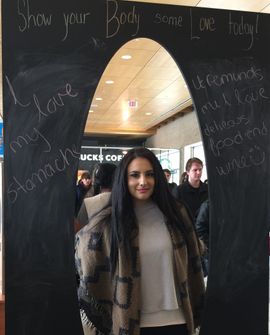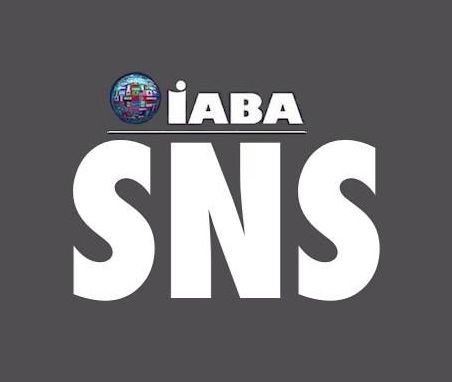Re-evaluating the Politics of Collaboration:
An SNS Roundtable Review – IABA Americas 2017
Amanda Spallacci
The International Autobiography Association 2017 Americas conference honoured Marlene Kadar, who has been instrumental in establishing the field of life writing, particularly, by nuancing issues around gender, genre, trauma, archival methodologies, and transnationalism. Much of Kadar’s research and publications are co-authored and co-edited, from Photographs, Histories, and Meanings
with Jeanne Perreault and Linda Warley to Tracing the Autobiographical
with Susanna Egan, Jeanne Perreault, and Linda Warley; and so, it only seemed natural that an overarching theme investigated throughout the conference was collaboration.
Fittingly, during the conference, the Life Writing Graduate Student and New Scholar Network (IABA SNS) hosted a roundtable discussion that centered on the notion of collaboration. Introducing the panel, Orly Lael Netzer shared her experiences as one-third of a long-standing academic collaborative relationship (IABA’s SNS network) and indicated that the network, as well as the current series of Collaboration roundtables, grew from an understanding of collaboration as ethical and political commitments which are the driving force of life-narrative studies — threading the past and future directions of the field, as well as providing emerging scholars, practitioners, and activists strategies to transgress the abyss of contemporary precarity in our professions. An attempt to push our scholarly-community’s critical thinking and practice of collaboration even further, the roundtable consisted of seven panellists who addressed topics spanning from collaboration across disciplines and mediums, care, ethics, support, resistance, and community.
Across Genres, Disciplines, and Locations
Many of the presentations focused on collaboration across disciplines, genres, and physical locations. Teresa Lenzi and Claudia Mariza Mattos Brandão disclosed that their collaborative relationship began when Lenzi was a new teacher trained in art, and Mariza Mattos Brandão was a returning student with a background in engineering. Threading together knowledge from the contrasting disciplines allowed the collaborators to fuse different methodologies and approaches in order to produce creative and nuanced work in photography. Sustaining this relationship for over twenty years, Lenzi and Brandão find that collaborative work facilitates a collective capacity that is grounded in trust, cooperation, and mutual respect, allowing researchers to address and solve new and complex issues.
Communities of Support, Communities of Care
The idea of collaboration as a process grounded in sophisticated teamwork, accountability, respect, communication, and trust, was further echoed in the lightning talks by Laura Garcia de la Noceda Vazquez, Ally Day, and Diana Meredith. While studying for her Master of Art in English Education degree, Laura Garcia de la Noceda Vazquez works as a graduate teaching assistant. Throughout the contract, it became increasingly apparent that there were not many teaching resources available to new teachers, nor were there opportunities for peer dialogue and idea building. As a result, Garcia de la Noceda Vazquez collaborates with her classmates to create a teaching textbook that graduate teaching assistants can contribute to and share their pedagogical approaches and strategies for the English-Language classroom. Garcia de la Noceda Vazquez demonstrates how assuming complimentary roles, working cooperatively, and sharing responsibility produces a more sustainable way to develop teaching activities and approaches.
In an attempt to theorize, “how the stories we tell about ourselves shape the quality of our healthcare”, Ally Day’s methodology involved contrasting the responses of two reading groups (one consisting of women living with HIV and a second with AIDS Service workers). Rather than base her research on previous publications, Day wanted to hear directly from the people who are at the center of her research, and highlight their voices; voices that are so often erased and overshadowed by dominant medical discourses. Similarly, Diana Meredith, an artist whose work was featured at the conference’s art exhibit titled Outside the Lines, discussed “activist art” — letters and visual art providing cancer patients an outlet to represent their own embodied experiences, which are often suppressed by the medical establishments’ ownership of the illness. By collaborating with the artists, nurses and doctors, and by reviewing representations of experiences of illness, Meredith hopes to bring the sometimes-opposing narratives into conversation with each other. Meredith, along with Day and Garcia de la Noceda Vazquez model how collaboration enables us to create communities of belonging and support, and to uncover alternative and empowering knowledge and productive discourses.
Speaking With Others, Rather than For Others
During her plenary presentation about working with Kadar, Linda Warley stated, “collaborative research is a feminist practice.” At the roundtable discussion, Warley spoke about the way this method is important for considering the ethics of working with other peoples’ words, particularly when you don’t embody the same subject position with the group you are researching. Similarly,
Ricia Anne Chansky critiqued the tendency to privilege single authored publications within academic communities, and in what she classifies as an act of resistance, shares her decision to co-author a publication with her entire class. Rather than transcribe and reinterpret the rich ideas emerging from within class discussion into a single authored publication, Chansky’s co-authored publication allows her to resist “the erasure of multiple and diverse voices from public spaces.” Both presentations assert a resistance to the academic imperative to emphasize one’s own voice as one of authority, and instead, decenter, or “let go of the words” (Warley) so we can “speak with others rather than for others” (Chansky). For Chansky and Warley alike, collaboration is about joining together in order to sustain a multiplicity of voices, share resources, and garner enough influence to have an impact on an issue.
The panel in its entirety addressed an ethics and responsibility required while working with others, and invoked a desire for research, art, and pedagogy to generate forms of political awareness and activism. During the question and answer portion of the roundtable, Craig Howes asked whether or not there is a downside to collaboration, or if there are instances when we shouldn’t collaborate. Mariza Mattos Brandão stated that the word “collaboration” in Portuguese translates in English to “a relationship or contract with care,” and a common theme that emerged from the panelists’ responses is that often times collaboration, whether it manifests in co-authorship, working with marginal groups, or speaking about disenfranchised groups, involves a hierarchal power dynamic. Many of the panelists shared the practices and strategies they have developed in order to attend to these imbalances of power and cultivate effective communication between all collaborators (whether researchers, subjects, or community organizations), in order to generate shared knowledge and make an impact beyond academy.
The SNS roundtable panel on collaboration provided an opportunity to discuss the manifold avenues of collaboration.. While collaboration can be challenging, it teaches us how to build communities with others, exchange information, decenter ourselves, and become better researchers, artists, teachers, and activists. The speakers of the Americas Collaboration roundtable demonstrated that collaboration is essential to our field, precisely because it is through letting go of control and prestige, and instead, practicing collaboration as building “a relationship with care”, that we responsibility and reciprocally honour the people and communities whose lives we share.

Amanda Spallacci is a first year PhD student in the Department of English and Film Studies, where she studies under Dr. Julie Rak, and her dissertation is titled “Deconstructing Rape Narratives.” Amanda published a blog post on the IABA SNS website, and another piece in a special issue of a/b: Auto/Biography Studies (32.2 Spring 2017). Both pieces explore sexual assault narratives as they appear in auto/biography genre.


